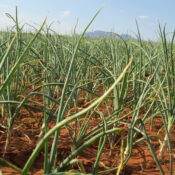
Planting the Future: How Youth Can Drive Tanzania’s Agricultural Revolution
Agriculture remains the backbone of Tanzania’s economy, employing nearly 65% of the workforce. However, for decades, farming has been associated with traditional methods that often yield low productivity and discourage youth participation. This perception is changing as young people step up to drive agricultural innovation, creating a more sustainable and profitable future.
Youth Empowerment in Agriculture
Engaging young people in agriculture is crucial for ensuring food security and economic stability. With programs like Vijana Village Park, youth-led initiatives are reshaping the landscape by promoting modern farming techniques, training aspiring agripreneurs, and advocating for policies that support young farmers. By providing access to funding, mentorship, and training, these programs are equipping the next generation with the skills and knowledge needed to make farming an attractive and viable career choice.
"Our young people hold the key to transforming our agricultural sector into a powerhouse of economic growth." – Hon. Hussein Mohamed Bashe
Young farmers are increasingly recognizing the potential of agriculture beyond subsistence farming. They are forming cooperatives, engaging in agribusiness, and exploring export opportunities. With the right support, they can contribute to national food security while creating job opportunities for themselves and others.
Sustainable Farming: The Path to a Greener Future
Sustainable agriculture offers a way to increase yields without depleting natural resources. Youth are adopting eco-friendly practices such as drip irrigation, organic farming, and agroforestry to combat climate change and ensure long-term productivity. At Vijana Village Park, the focus is on irrigation farming in Mgagao, where youth cultivate watermelon, onions, and maize in an arid region, demonstrating resilience and adaptability.
Moreover, sustainable farming practices help reduce reliance on chemical fertilizers and pesticides, promoting healthier soil and crops. By implementing crop rotation, composting, and permaculture techniques, young farmers are proving that environmentally friendly practices can be both productive and profitable.
Agricultural Innovation: Technology as a Game-Changer
Digital tools are revolutionizing farming. From mobile apps that provide real-time weather forecasts to precision farming techniques that optimize resources, young farmers are leveraging technology to improve efficiency and profitability. The integration of drones, automated irrigation systems, and AI-driven pest control is making agriculture more attractive to the tech-savvy generation.
Additionally, blockchain technology is being used to enhance supply chain transparency, allowing farmers to track their produce from farm to market, ensuring fair pricing and reducing exploitation. E-commerce platforms are enabling farmers to connect directly with buyers, cutting out middlemen and increasing profit margins.
Job Creation and Economic Growth
Agriculture has the potential to generate employment opportunities for thousands of young Tanzanians. By establishing agribusiness ventures, youth can move beyond subsistence farming to create value-added products, such as packaged foods, organic fertilizers, and processed agricultural goods.
Vijana Village Park is leading by example, empowering young farmers to see agriculture as a viable career rather than a last resort. By investing in agricultural entrepreneurship, young people can tap into the agribusiness value chain, from production and processing to marketing and distribution. This not only provides jobs but also strengthens the country’s agricultural sector and contributes to economic growth.
Moreover, public-private partnerships can help bridge the gap between youth and the resources they need to thrive. Government initiatives, combined with private sector investment, can provide young farmers with access to modern equipment, quality seeds, and training programs that ensure long-term success.
Conclusion
Tanzania’s agricultural revolution depends on its youth. Through empowerment, sustainability, and innovation, young people can transform the sector into a thriving industry that not only feeds the nation but also drives economic progress. Initiatives like Vijana Village Park serve as a blueprint for harnessing the potential of youth in agriculture, ensuring a prosperous future for generations to come.
As the world faces the challenge of feeding a growing population, investing in young farmers is not just an option—it is a necessity. By embracing new technologies, adopting sustainable practices, and viewing agriculture as an entrepreneurial opportunity, Tanzania’s youth can lead the way in creating a resilient and thriving agricultural sector.
The time is now—let’s plant the seeds for a brighter tomorrow.
All Categories
Recent Posts
From Seedlings to Startups: Building Successful Agribusiness Ventures
Women and Youth Leading Tanzania’s Green Economy
Empowering Youth to Combat Global Warming Through Smart Farming
Vijana Village Park
+255 749 746 304
info@vijanavillagepark.org




